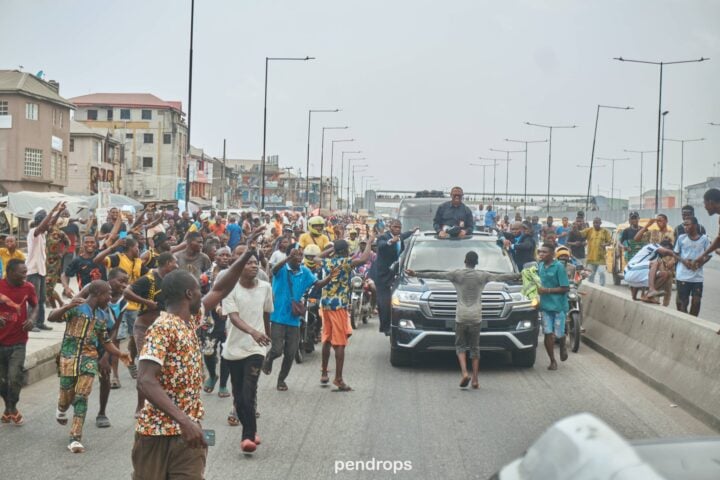Controversy Surrounds Teenager's Detention Following Court Dismissal

The Lagos State Police Command has found itself under scrutiny following the arrest and subsequent detention of Alabi Quadri, a teenager who gained public attention during the 2023 presidential election for his encounter with Labour Party candidate Peter Obi's convoy. Quadri's arrest and the handling of his case have raised questions about due process, the treatment of minors within the legal system, and potential political motivations.
Initially, Alabi Quadri was apprehended in connection with a violent street fight that occurred in the Amukoko area of Lagos on January 22nd. According to police spokesperson Benjamin Hundeyin, the clash involved rival youth groups and resulted in injuries, property damage, and reports of robbery targeting innocent bystanders. The police launched an investigation, and Quadri, along with four others, were arrested and charged in court. The court ordered their remand at a correctional facility pending legal proceedings.
However, the case took a turn when the Directorate of Public Prosecutions (DPP) reviewed the evidence and found it insufficient to support the armed robbery charge against Quadri. This led to a court order for his release. Quadri's lawyer, Inibehe Effiong, provided a different account of the events leading to the arrest, alleging that Quadri was framed by local thugs seeking to extort him due to financial donations he received after his encounter with Peter Obi. Effiong claimed that the robbery allegations were fabricated and that the DPP's review vindicated Quadri.
A key point of contention is Quadri's age. While the police recorded him as 18 years old, his family and lawyer maintain that he is 17. This discrepancy is significant because Nigerian law requires that individuals under 18 be brought before juvenile or family courts, not regular courts. Effiong accused authorities of manipulating Quadri's age to prosecute him inappropriately. This situation echoes past instances, such as the #EndBadGovernance protest, where the police allegedly disregarded the law regarding the detention of minors.
The Lagos State Police Command, however, insists that its actions were based on due process and credible evidence. Hundeyin stated that the police investigation was thorough and transparent, relying on information from community members and victims of the alleged robbery. He urged the public to remain calm and allow the judicial process to run its course. The police maintain that Quadri's arrest was connected to the Amukoko street fight, where he was allegedly involved in violent attacks, public disturbance, and property damage.
Following Quadri's release, Peter Obi met with him and his lawyer, Inibehe Effiong, and pledged to help Quadri obtain the necessary training or education he desires. Effiong has called for compensation of N100 million and a public apology from the police. The case has drawn considerable public attention and raised concerns about the potential for politically motivated arrests and the treatment of minors within the Nigerian justice system.
The Lagos State Police Command's handling of the Alabi Quadri case highlights the importance of upholding due process, protecting the rights of minors, and ensuring transparency in law enforcement. As the situation unfolds, it remains to be seen whether the police will address the concerns raised by Quadri's lawyer and the public, and whether Quadri will receive the support he needs to move forward.










